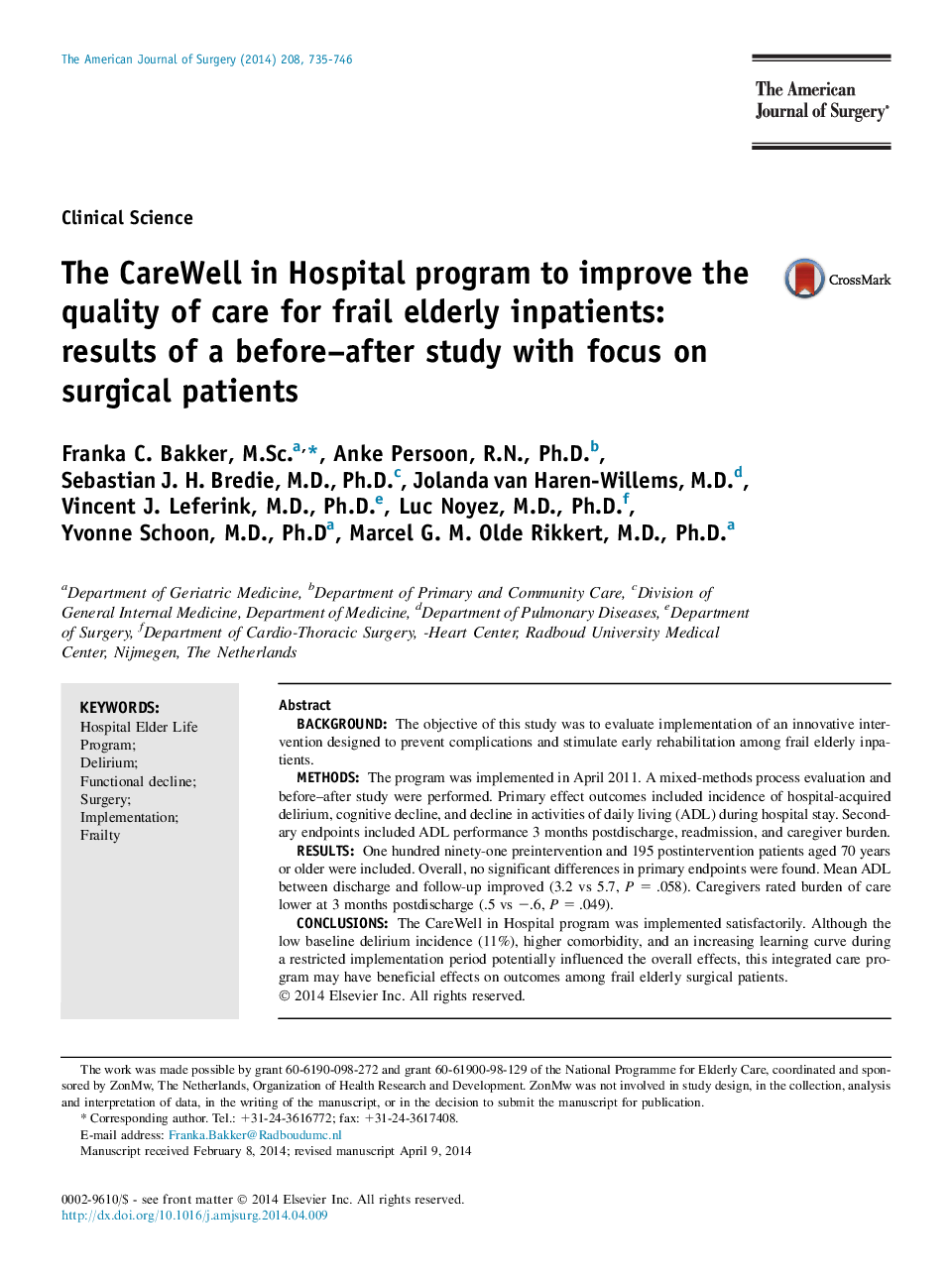| Article ID | Journal | Published Year | Pages | File Type |
|---|---|---|---|---|
| 4278727 | The American Journal of Surgery | 2014 | 12 Pages |
•Hospital-acquired delirium and disability among elderly are serious medical problems.•CWH may be a valuable intervention to prevent complications among elderly patients.•Process evaluation is valuable in monitoring implementation and evaluating effects.•Use of innovative PROMs in addition to commonly used measures is recommended.
BackgroundThe objective of this study was to evaluate implementation of an innovative intervention designed to prevent complications and stimulate early rehabilitation among frail elderly inpatients.MethodsThe program was implemented in April 2011. A mixed-methods process evaluation and before–after study were performed. Primary effect outcomes included incidence of hospital-acquired delirium, cognitive decline, and decline in activities of daily living (ADL) during hospital stay. Secondary endpoints included ADL performance 3 months postdischarge, readmission, and caregiver burden.ResultsOne hundred ninety-one preintervention and 195 postintervention patients aged 70 years or older were included. Overall, no significant differences in primary endpoints were found. Mean ADL between discharge and follow-up improved (3.2 vs 5.7, P = .058). Caregivers rated burden of care lower at 3 months postdischarge (.5 vs −.6, P = .049).ConclusionsThe CareWell in Hospital program was implemented satisfactorily. Although the low baseline delirium incidence (11%), higher comorbidity, and an increasing learning curve during a restricted implementation period potentially influenced the overall effects, this integrated care program may have beneficial effects on outcomes among frail elderly surgical patients.
